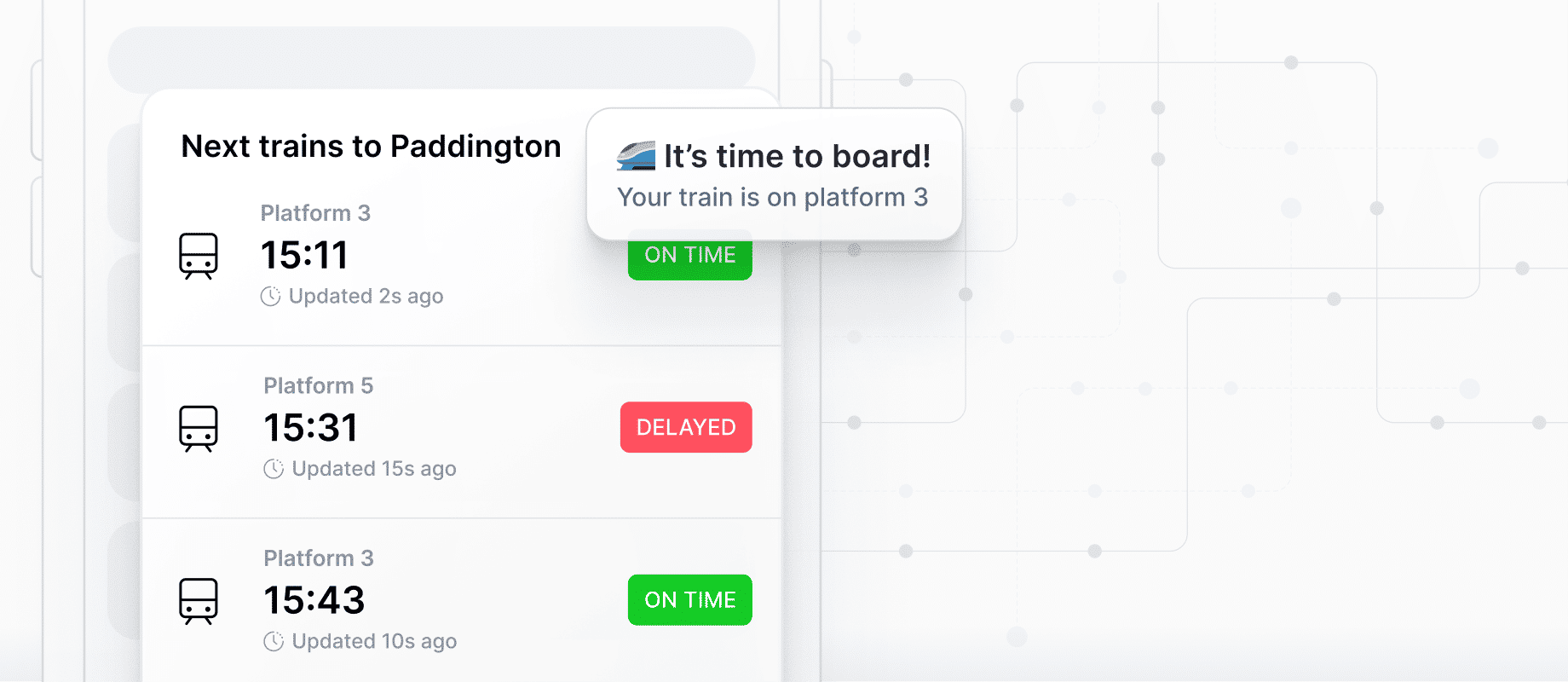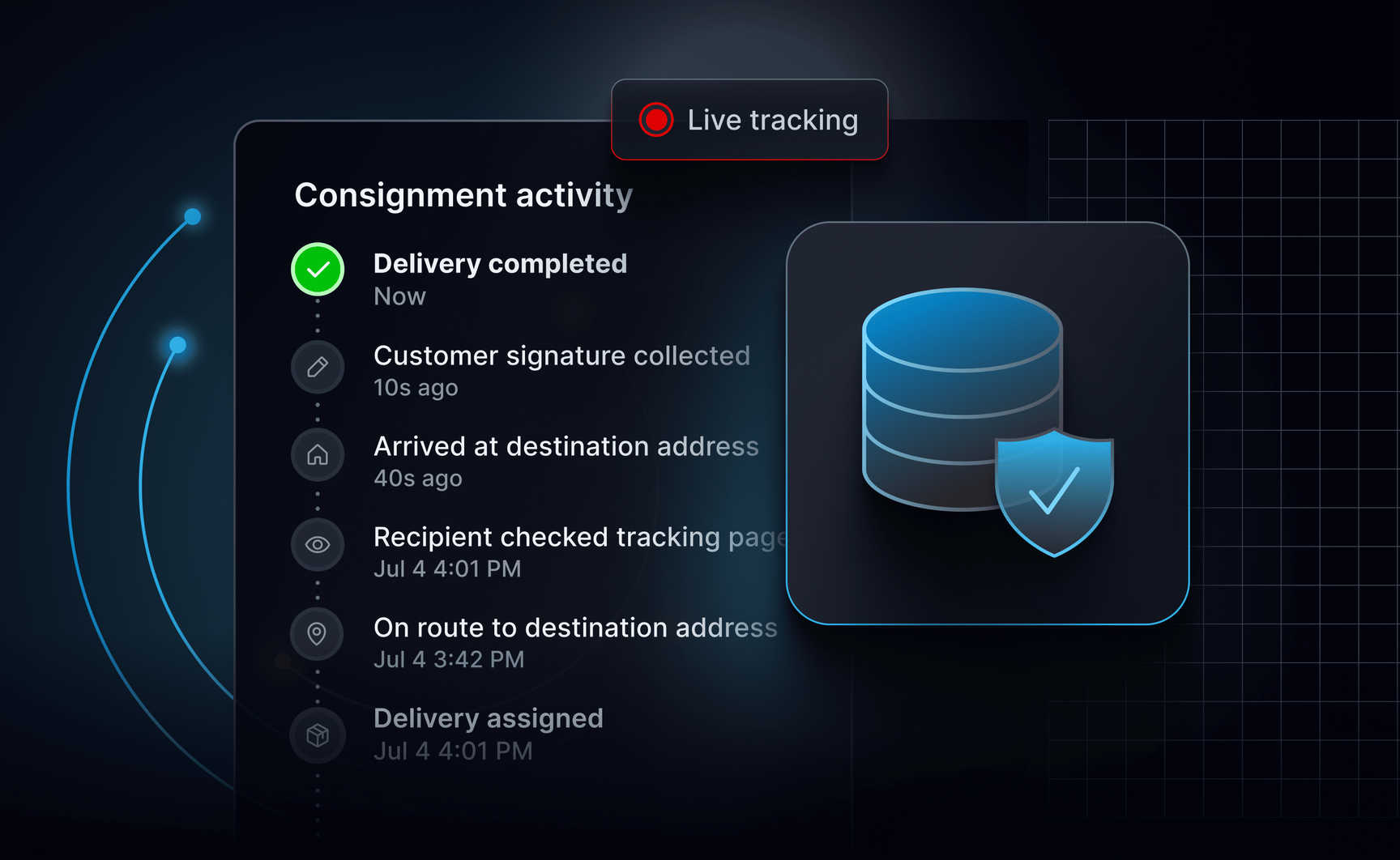With the rise of online ordering and the growth of delivery, consumers and businesses alike order more packages, expect them faster, and want rapid updates on progress, delays, and changes. Companies providing transportation and logistics services, then, have a compelling reason to add realtime update features to their apps.
In other articles, we’ve talked about the broad challenges transport and logistics companies face when providing realtime updates, including scalability and low latency. But even with those challenges handled, realtime features can still fail if there are even slight data integrity issues.
What do we mean by data integrity?
Data integrity is a measure of how accurate, complete, and consistent a feed of data is. In the context of realtime updates, in particular, that means the ability to preserve data as your system transmits it from the backend to the fronted and as data is published and moved to an end-user’s device.
In other use cases and in other types of apps, data integrity is important but data integrity issues are rarely damaging. For example, if a social media app sends notifications to a user out of order, the user might not even notice and if a music streaming app has mismatched artist and album titles, users will likely only be annoyed.
But for transportation and logistics companies providing realtime updates, data integrity is essential. Users can’t ignore out-of-order updates if the updates are about when vehicles have arrived at their destination or when a train is leaving one station and arriving at another.
Why is data integrity essential for transportation and logistics apps with realtime updates features?
Take the train example from above: Metra, a commuter rail system that handles 300,000 passengers per day, depends on Ably to help them offer realtime timetable and station status updates to travelers.
With 300,000 passengers potentially requesting updates on any given day, you can see why the organization turned to an outside service.
At this scale and in this context, data integrity issues become a matter of public concern. People depend on rail systems to get them to work, to see their families, to get to medical appointments, and more. Out-of-order or inaccurate updates are more than just annoying.
Other industries also care about data integrity but small errors aren’t as consequential and the circumstances in which they’re providing updates aren’t as difficult. Scalability and reliability – both of which are much harder to maintain while providing realtime updates – make data integrity even harder to ensure.
How transportation and logistics apps can ensure data integrity across realtime updates

Transportation and logistics companies have compelling reasons to offer realtime updates. Consumers and businesses alike benefit from up-to-the-second updates. Realtime updates help travelers arrive at train stations on time, for example, and help office suppliers, as another example, better fulfill and monitor mass orders.
Data integrity is only possible in a realtime system if companies consider these factors:
- Subscribers need to be able to rely on getting all messages in the same order they were originally published – even if users are checking for updates across different regions or accessing updates via flakey networks.
- All messages need to be delivered once and only once. Lost messages and messages delivered multiple times compromise the experience.
- Realtime update systems need to send the correct messages in the correct order even if users disconnect and reconnect to the Internet or to the app.
These factors make data integrity difficult but go-to strategies don’t always work. If you’re copying data across different data centers to ensure greater resiliency, for example, the likelihood of redundant messages rises.
At Ably, we’ve seen the most common problems and we’ve seen the edge cases. Our data broadcast solutions integrate everything we’ve learned. Rather than building a realtime updates system on their own and having to maintain it over time despite a range of stringent expectations and difficult technical challenges, organizations like Metra, Toyota, and Urbantz turn to Ably.
Read about how our data broadcast solution supports realtime updates.
This is the third in a series of four blog posts about the three pillars for supporting realtime update infrastructure in transportation and logistics apps. In the other posts, we look at why low latency and elasticity are so important when you're trying to deliver realtime updates to end users at scale.



